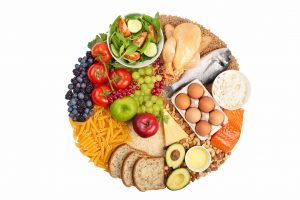 Protein consumption can be confusing, but one thing is for sure: you need it. Without it, your body has a difficult time building and maintaining muscle. When strength and muscle mass decline, the risk to your health goes way up.
Protein consumption can be confusing, but one thing is for sure: you need it. Without it, your body has a difficult time building and maintaining muscle. When strength and muscle mass decline, the risk to your health goes way up.
Recent research suggests protein intake should be about double the current recommendations, particularly for people 50 and older.
Advertisement
The importance of protein is non-negotiable. But where people get it can be.
The best sources of protein come from animals: beef, chicken, pork, etc. But there is also a push to consume fewer animal products. So, what should you do?
One option is to select lean protein. Skinless chicken and turkey are some of the best options. Although the leanest cuts come from the breast, the dark meat doesn’t carry too much fat, so go for taste. Just remember to remove the skin most of the time.
In these options, almost every calorie is coming from protein.
Fattier protein options include red meat, pork, and fish. Of course, there are differences among these too. Some cuts of red meat, like flank steak or extra lean ground beef, are very lean. Others, like regular ground beef or ribeye, are very high fat.
For some, eating more red meat may counteract efforts to manage cholesterol or blood pressure, so choose accordingly. Further, fatty cuts of protein can add plenty of extra calories to your diet.
Fish is an excellent source of protein even though it can be high in fat. Fish like salmon, tuna, and mackerel are high in protein and omega-3 fatty acids that can promote heart health in addition to muscle growth and maintenance.
Dairy, like yogurt and egg, are also good sources of protein. Greek yogurt may be one of the best. Many protein powder supplements are made from whey, a dairy byproduct.
Advertisement
What makes animal sources the best is that they are all “complete” proteins. This means they feature the nine essential amino acids. Plant sources of protein are generally “incomplete” proteins, meaning you need to eat a selection of them to get a complete protein.
Quinoa is one of the only plant foods that offer a complete protein. Other plant sources of protein, although incomplete, include beans and legumes, seitan, lentils, soy, and more.
The best option for protein consumption is to consume various plant and animal-based foods each day, throughout the day, until you’ve reached about 1 to 1.2 grams per kilogram of bodyweight.
